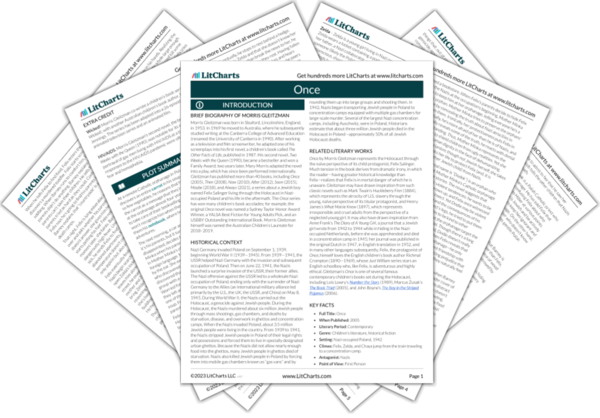For much of the novel, Barney has known more than Felix, and the two characters have disagreed about what to do because of their asymmetrical knowledge. Now, however, they have the exact same limited information: they are headed for a concentration camp, where they will likely die, and if they jump from the train, they may escape—or die sooner. In possession of the same information, Felix and Barney disagree about what to do. This disagreement shows that while telling children the truth is important, everyone having access to the same truth won’t necessarily end disagreements or make it easier to decide what to do.
